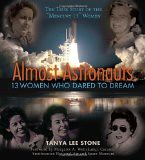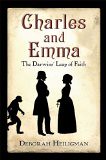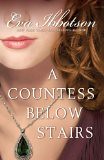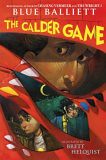First things first. Today I unveil the
Biblio File store. If there isn't a link in the sidebar, there will be one soon. It's a place where you can see (and buy) my current favorite things--and not just books. Check it out. Buy some stuff. Support the habit. Don't forget the
Zazzle store either! Because, as Larry Beinhart once said (but don't ask me where)
"Librarians don't make a lot of money, more than poets, but not so much, say, as your more successful panhandlers..."Anyway, let's talk books.
A few weeks ago, I
talked about my favorite ballet series, Drina, by Jean Estoril, that I had donated away to the library, which I know seriously regret. First off, big love to my father who saw that posting and braved the basement to make sure that I didn't actually leave it at home. I found the first 5, which I originally owned, rather affordably online. I then found the sixth as well! As far as I can tell 6-11 were never published in the US. All the copies of 7-11 I can find are at least $25 when I factor in shipping, and that's nothing I can afford at the moment. (See above)
Anyway, I've been enjoying rereading these wonderful books, even if I'm noticing things I didn't notice before. The basic premise of the series is that Drina Adams is an orphan living with her grandparents training to be a ballet dancer. The first 5 books were written in the late 50s/early 60s and take place mainly in London.
Things I never noticed before: how stereotypically stiff-upper-lip British Drina's Granny is. In one scene in the first book, Drina's lies get found out at a department store and she (age 12) starts crying. Granny is horrified she would show such emotion in public and tells her to pull herself together. Granny is often telling Drina to not be so emotional.
Also: the issue of Drina's "Italian Blood." Drina's father was Italian. Everytime Drina's temper flares up, or if she's overly emotional, excited, or sentimental, it's because of her Italian blood. Also, although her name is actually Andrina Adamo, her grandmother much prefers her to go by "Adams."
Anyway, onto the books!
We start with
Ballet for Drina, in which we first meet Drina. Drina likes dancing, but it becomes very apparent early on that Granny does not approve. When she starts a new school, she meets Jenny Pilgrim, who hates ballet, but is forced to go to lessons nonetheless. With Jenny's help, Drina is able to start classes at the Selswick school and works very hard for two years. Then, Granny and Grandfather decide to move to London! And there's no more ballet for Drina, unless she can find a way!
Next up is
Drina's Dancing Year in which Drina is accepted at the Dominick School to study ballet full time! There, she must deal with mean students and the fact that she hasn't danced in 6 months and is behind everyone else. But she finds a new friend in Rose (despite the fact Mrs. Chester is a snob and regrets that Rose is rather poor.)Drina's heartbroken when she isn't chosen to dance in the Christmas matinee, but Igor Dominick himself chooses her to act in a West End play!
In
Drina Dances Alone Drina's grandfather has been ill. As a result, Granny and Grandfather are moving to Australia for a year! Drina can't give up her dancing and is sent to Chalk Green, Dominick's residential school. Drina sees her time in the country as being forced into Exile, as she's away from the hustle and bustle of London life. Will she ever be able to fit in? (Also published as
Drina Dances in Exile)
In
Drina Dances on Stage Drina's back at the Dominick, although Rose is still at Chalk Green. She soon meets Ilonka, a Lynzonian refugee studying at the Dominick as well. (Lynzonia is apparently somewhere behind the Iron Curtain.) Igor Dominick, Jr. has joined the school and is a little snot ball. And there's lots of ballet. Over Easter, Drina is being forced to go to Italy and finally meet the other side of her family! Luckily, the Dominick will be there on tour as well, so all is not lost! (Also published as
Drina Dances in Italy)
Then, in the last book published in the US, we have
Drina Dances Again. At the end of the last book, Drina turned down a chance to play Margaret in a West End production of
Dear Brutus. Early on though, Drina visits her friends at Chalk Green and pulls a muscle rather severely. She's not allowed to dance for at least a month. So, she changes her mind and takes the part to take her mind off lack of ballet. Of course, she gets great reviews and although the back blurb makes a great to-do about Drina's choice between dancing and acting, it's not a choice at all. Even better, when she's back on her feet, Drina's chosen to dance the part of Clara in the production of
Casse Noisette (aka The Nutcracker) that the Dominick is taking to the Edinburgh festival. Wahoo!
Then, in a very new-to-me Drina book, we have
Drina Dances in New York. Drina's being taken to New York (via boat, as her grandparents are understandably skittish about flying.) Although there's no Dominick school in this one, Drina does fall in looooooooooooooooooooooooove! With an American Businessman! (Gyspy Jenny proved right again!) Also, Jenny's father's firm as closed down, so there's no agricultural college for Jenny. She's taking typing and seems resigned to not being a farmer after all.
One thing I've always loved about this series is Jenny's determination to become a farmer. Who wants to be a farmer? Jenny Pilgrim. I'm sure there's some post-war British thing about glorifying traditional country life, but whatever. I also like that she wants to do it properly and go to Ag. College and although money's tight, she fights to not be left out when her brothers get to go to college, she should be able too. So, I'm absolutely gutted over the fact it might not happen. That said, it's Jenny, so she'll find a way. I loved the way she and Drina have stayed best friends and that she really does provide a rock in Drina's life.
 Lost in London Cindy Callaghan
Lost in London Cindy Callaghan
























